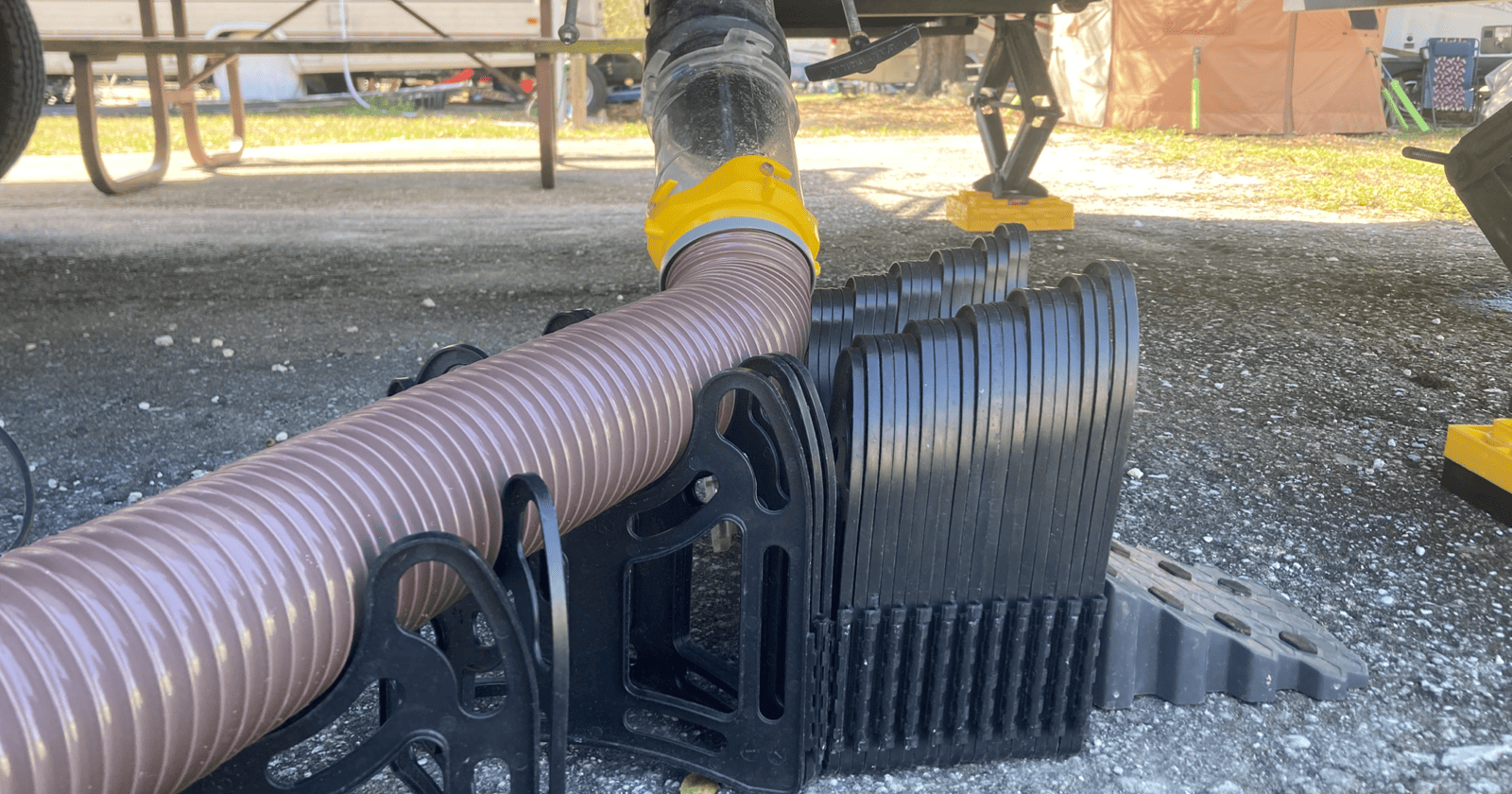Before Going Full-Time, You Need to Choose the Right RV.
Full-time RVing has become a pretty common thing over the past few years. The trend doesn’t seem to be letting up either, as both young millennials and entire families are hitting the road full-time.
As with buying a house, buying the right RV for full-timing is the key to a happy day-to-day life. The obvious difference in an RV is the living space. Anyone who has decided to go full-time has accepted that they will be downsizing. This comes with challenges and is often why full-timing doesn’t work out for many.
RVs vary from small converted cargo vans to 40+ foot rolling condos. One might think bigger is better, especially considering that even the largest RVs will be smaller than your sticks and bricks location. This isn’t necessarily true, though, because everyone will have different wants, travel, and lifestyle needs.
Before choosing your new home on wheels, you must look at your travel and day-to-day plans to decide on the best type of RV for full-timing. Each class, model, and floorplan has pros and cons and can work for full-timing.
What Are Your RV Needs?
A top-of-the-line class A with all the bells and whistles or a campervan? A hundred thousand dollars fifth wheel or a twenty-foot travel trailer? There are so many choices of RV types and models because there are so many different people with different needs.
If your plan for full-timing includes your partner and kids living primarily in one location, a large fifth wheel makes much more sense than a small travel trailer. On the flip side, if you are a single who will be exploring cities one week and remote boondocking areas the next, that big fifth wheel doesn’t make as much sense as a 4×4 campervan.
People must be honest about their needs and what full-time RVing will look like for them. A family of 4 with a dog isn’t really going to live happily in a small entry-level travel trailer. If you’re a young college graduate looking to travel for a year and purchase a new class C with a big monthly payment, your adventure may be more stressful than planned.
Some major things to consider when choosing an RV for full-time living:
- How much space do you need?
- Where and how often will you be traveling?
- What’s your budget
Space
Space in an RV is limited and can significantly affect your RV experience. The desire to downsize and live a simpler life is a big appeal to full-time RVing. While this is a great way to live, you must be honest about how drastic a change you are willing to make.
When considering indoor living space, you need to decide how much time will be spent indoors and what will be happening indoors. If you spend most of your time indoors, you will want a larger RV with nicer finishes and amenities. You will have to look at the storage available in the RV and ways you can add storage to the space.
If you work from home, you may require dedicated office space. Again, if you’re honest with yourself, will you be happy working daily at a dinette table? If you have children, not only will they need dedicated sleeping areas, but they may also need a separate room for playing, doing school work, or having alone time.
Space includes not only living space but also storage space. Think about your hobbies and the things you will have to use daily. Whether it’s crafting or paddle boarding, everything needs space, and those spaces add up.
Travel
Full-time RVing looks very different to different people. Living full-time in a stationary RV on your property is a different experience than living on the road full-time.
Some types of RVs are better suited for frequent travelers. If your travel will be state-to-state visiting parks and big serviced campgrounds, considering it’s in the budget, Class A looks like a great option. Perhaps you will often be traveling, but in more rural areas, off-road areas, and boondocking. A 4×4 van would be better suited than that big Class A.
If you want a vehicle to unhook easily and drive daily or explore cities, having a towable gives you this option. Maybe you need your truck for work every day and are an avid off-roader with quads; a toy hauler would fit perfectly into your travel plans.
Budget
Unfortunately, your budget will be a factor in your RV choice. One thing to consider is you don’t need a brand-new RV or a top-of-the-line RV for full-timing.
If your dream is a large motorhome, but the budget only allows for something 40 years old, you need to consider the total cost. How much will this RV cost you in repairs while on the road? The same can be said for trying to get the largest RV possible by buying something old. There is nothing wrong with older RVs. However, you need to consider maintenance and repairs in your choice.
Financing a new RV will be something that may or may not fit into your budget. If this is your route, don’t put yourself in significant debt to fund this dream. Balancing your wants and needs and your budget is the first step in choosing your RV.
The Best Type of RV for Full-Timing
After carefully considering your travel plans, space requirements, and budget, you can start to look at RV types.
Each type of RV has multiple models and floorplans, so the decision won’t be easy. This is why it’s so important to be honest with your wants, needs, and plans. When looking at RVs, it’s easy to get sidetracked and overwhelmed by all the options. One thing to consider is that your plans and life can change, which may mean changing RV types. Once you buy an RV, it doesn’t mean this is the only RV you’ll own. Choosing the right RV can save you money and improve your full-time experience.
Motorhomes
The obvious benefit of motorhomes is the comfort of travel. Motorhomes are great if your travel plans include putting on lots of miles. For many, motorhomes are the best type of RV for full-timing.
Motorhomes can be small or large, cheap or ultra-expensive. Although driving a large motorhome is a big responsibility, motorhomes eliminate the towing experience. This is a big draw for many people who don’t want the hooking up, unhooking, towing, and maneuvering of a trailer.
Although you can tow a vehicle behind a motorhome, many people will only have the motorhome itself. This can make exploring and running errands more difficult if you only have a large motorhome. The maintenance and repair, especially on large Class A motorhomes, can also be a big expense.
If you don’t travel much but want the space, a large fifth wheel might make more sense than a motorhome. Maintaining the drivetrain on a motorhome and depending on its reliability for your daily transportation when it sits stationary almost all year may not be the right choice.
Campervans
#Vanlife, it’s the coolest way to live right now. Vans provide freedom unlike any other type of RV. That being said, they are definitely not for everyone.
Vans take downsizing to another level. A family isn’t very likely to be moving into a campervan. The space is limited, but the versatility of vans is fantastic. Some people live in big cities; some explore desert and mountain areas secluded from society. Camper vans, particularly 4×4 vans, can take you places a towable or motorhome just can’t. Being self-contained, drivable, and in many cases, pretty fancy, camper vans are unique.
If you want to really get away, a campervan can get you there. Active people who plan to spend much of their time outdoors will be happy with van life. As with RVs of any type, vans vary significantly in their options. Due to space restrictions, many vans don’t have showers, and some have no toilets. Vanlife looks dreamy on Instagram, and for many, it is. However, there are some significant considerations before going full-time in a van.
Fifth Wheels / Travel Trailers
Towables probably make up the largest portion of full-timers. The sizes and models available are extensive and a great way to live full-time.
Having a towable means you have a home, and a separate vehicle, just like you likely do now. For families, towables offer the space needed for kids, work, and storage and can be the most house-like type of RV for full-time. Newer fifth wheels are being designed with full-timers in mind. They are becoming more house-like and offering office space, well-equipped kitchens, and living areas.
People who do lots of travel and jump from campground to campground can become disenchanted with the towing aspect of this type of RV. The setup and breakdown of towables and the huge responsibility of towing can be a turn-off. A big cozy fifth wheel can be a perfect home for anyone who is more stationary.
Conclusion
There is no best type of RV for full-timing that fits everyone. The decision to go full-time is a big one, and there are many things to consider.
The most important thing is to be honest in your search for an RV and how you will use it. It’s not uncommon for people who go full-time to upgrade as they grow into that lifestyle. While it is essential to choose an RV that works, you can change RVs as your journey goes on.
The full-time RV life can offer freedom of travel, finances, and time to anyone willing to leap. There is no shortage of online groups and resources for full-time RVers. These real-world stories of families and individuals living the life and learning from their mistakes can be a wealth of information to you.
Continue reading:





